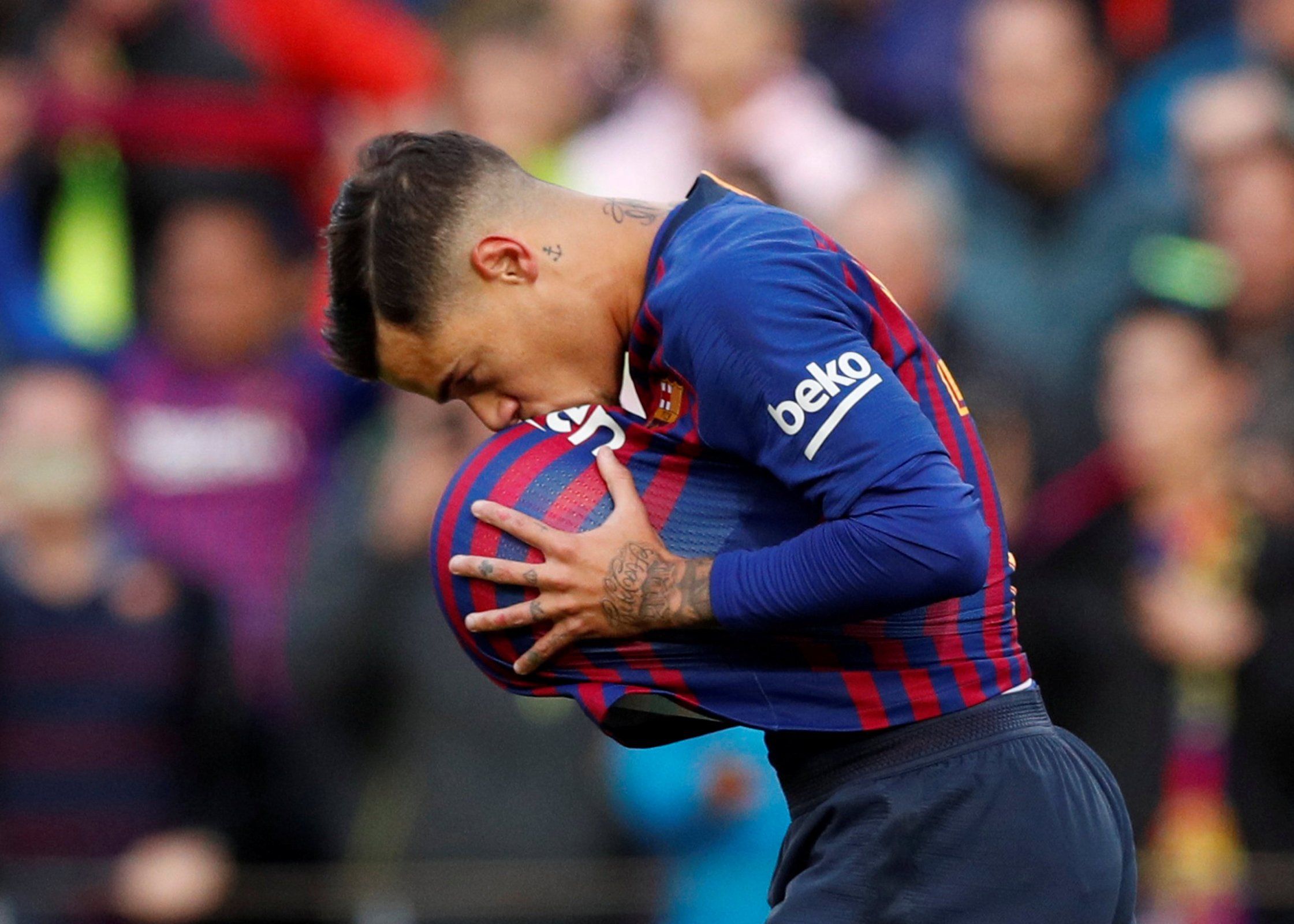[ad_pod ]
As we approach the beginning of La Liga this Friday with the curtain-raiser between Barcelona and Atheltic Bilbao, one player is looking increasingly unlikely to feature in the squad.
Philippe Coutinho's Barcelona career, is slowly but surely running its course and a departure from the club now looks likely. Of course, that deal is closely connected to the reported return of Neymar to Barcelona, which would see one Brazilian arriving at the Camp Nou with his fellow compatriot moving in the opposite direction.
But among all those stories putting Coutinho in Paris Saint-Germain colours, more recently a piece of news broke out claiming that Germany could in fact be Coutinho's destination. Of course, it would seem no Bundesliga club can actually afford the little magician bar one single club - Bayern Munich. And the Bavarians are indeed interested but are looking at the prospect of a loan deal rather than a permanent one.
Financially speaking, and this is especially true for players of such high value as Coutinho, a loan would, at first glance at least, be the more sensible option.
Upon further inspection, however, it hardly makes sense for the buyer, in our case - Bayern Munich. But let's start with why Barcelona would profit from it immensely.
This part might seem the more obvious one but it has to be said as well. Coutinho's form at the club has been questionable ever since he arrived at the club.
For the majority of his time with the La Liga giants he's been utilised as a left-winger, a position he is neither an expert in nor is he at his most exhilarating in. Of course, a lot of it depends on the system the club uses but, in general, he is more comfortable as a number ten with the freedom to roam the edge of the box.
With Lionel Messi in the team, however, it started to become painfully obvious Coutinho would just step on the Argentine's toes while doing his signature cutting inside and roaming. For that reason, he was chained to the left flank and forever underutilised as a player. But I digress. The point is that Barcelona now want to offload him and either recoup some of the money, free up an additional spot in the squad, relieve some of that wage bill or finally, avoid further payments to Liverpool.
And this last one is the one people seem to forget. When the Brazilian arrived from Anfield, the Merseyside team made sure to put various clauses in his contract so that they would get as much money for their talisman as possible. Most of these were related to Coutinho's appearances, contribution to the team and trophies won. With Coutinho out of the club, none of these variables would be met, at least not now that the club is so desperately trying to recoup as much money for other, more costly, deals they're working on.
But there's also the question of the 27-year-old's form. If he goes to Bayern, or any other club for that matter, and returns to his brilliant best, Barcelona would be getting a player reborn come next season. It's an ideal situation. His value would rise and the Catalans would end up with more money or, perhaps, a better player to utilise for their own benefit.
For those reasons, regardless of the loan working out or not, it's a win-win scenario for them.
Then we come to the other side of the coin, which is the buyer's point of view. For the sake of the argument, let's divide the possible outcome in purely black and white scenarios: either the loan works out perfectly, meaning the player performed extremely well or the opposite, with Coutinho failing at his new club too.
In the first case scenario, Bayern (or someone else) get a brilliant player for a year and he helps them immensely. But come the end of the season, they have to send him back and since he performed so well, they will have to pay a premium for his services.
Effectively, a series of great performances would play right into Barcelona's hands. Not only would the Catalans get back a reinvigorated player, as we've already touched upon, but they would also be in a better bargaining position if the potential suitor was keen to make the deal permanent.
The scenario in which Coutinho doesn't do well is clearly also bad for the buying club. They're paying the wages of a really expensive player throughout the year and his poor performances would put a permanent deal out of the question.
From this standpoint, it would be easy to conclude that loan deals, in general, don't make much sense. For big clubs, they often don't. The only way of actually bypassing this "trap" is by inserting clauses that give the buyer an option of a fixed price upon the end of the loan.
That way, regardless of the performance of the loanee, you're still paying the same price and doing so only if you deem it worth your money. And seeing how Coutinho's form has dropped, a fairly decent price could, in theory, be negotiated.
The last thing Bayern or another interested party want to do is give Barcelona any power in this deal. It remains to be seen, however, whether that will be the case or not.
[ad_pod ]



